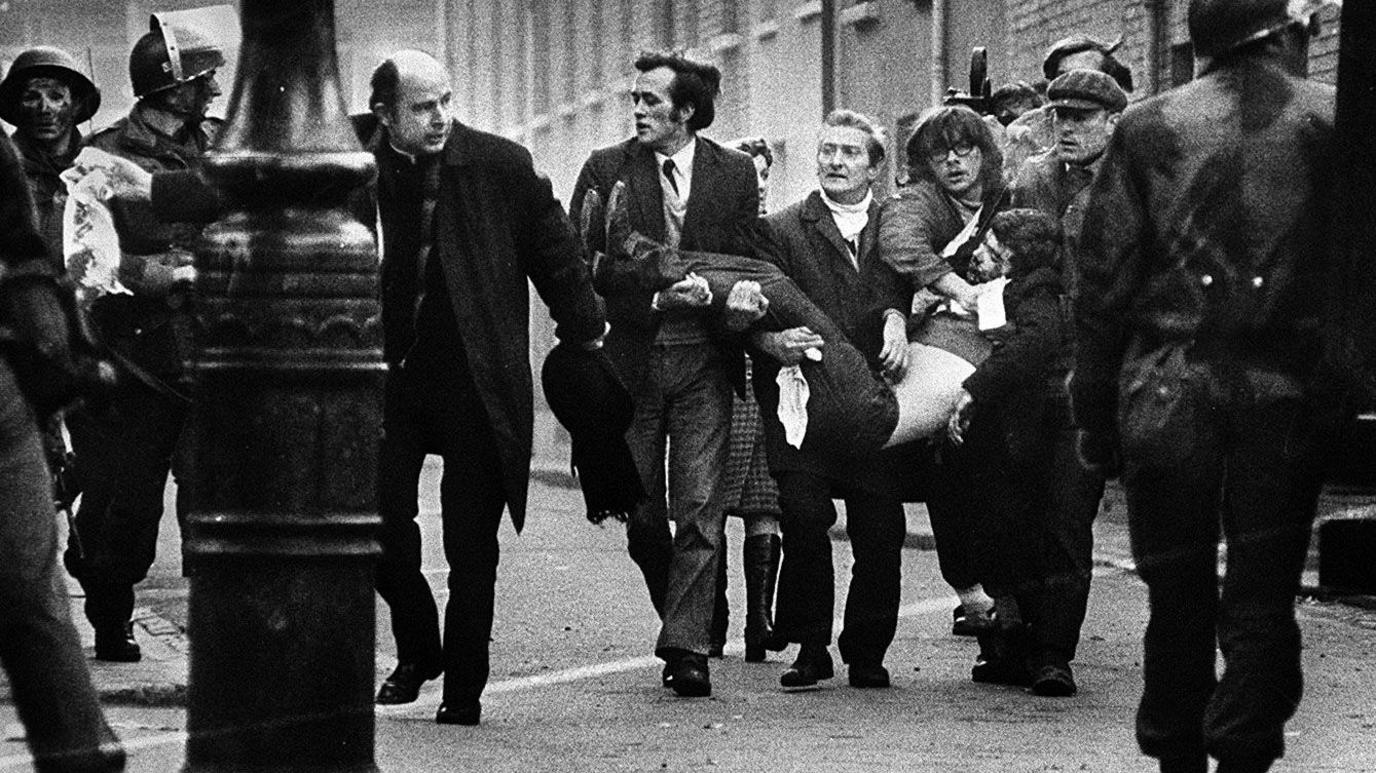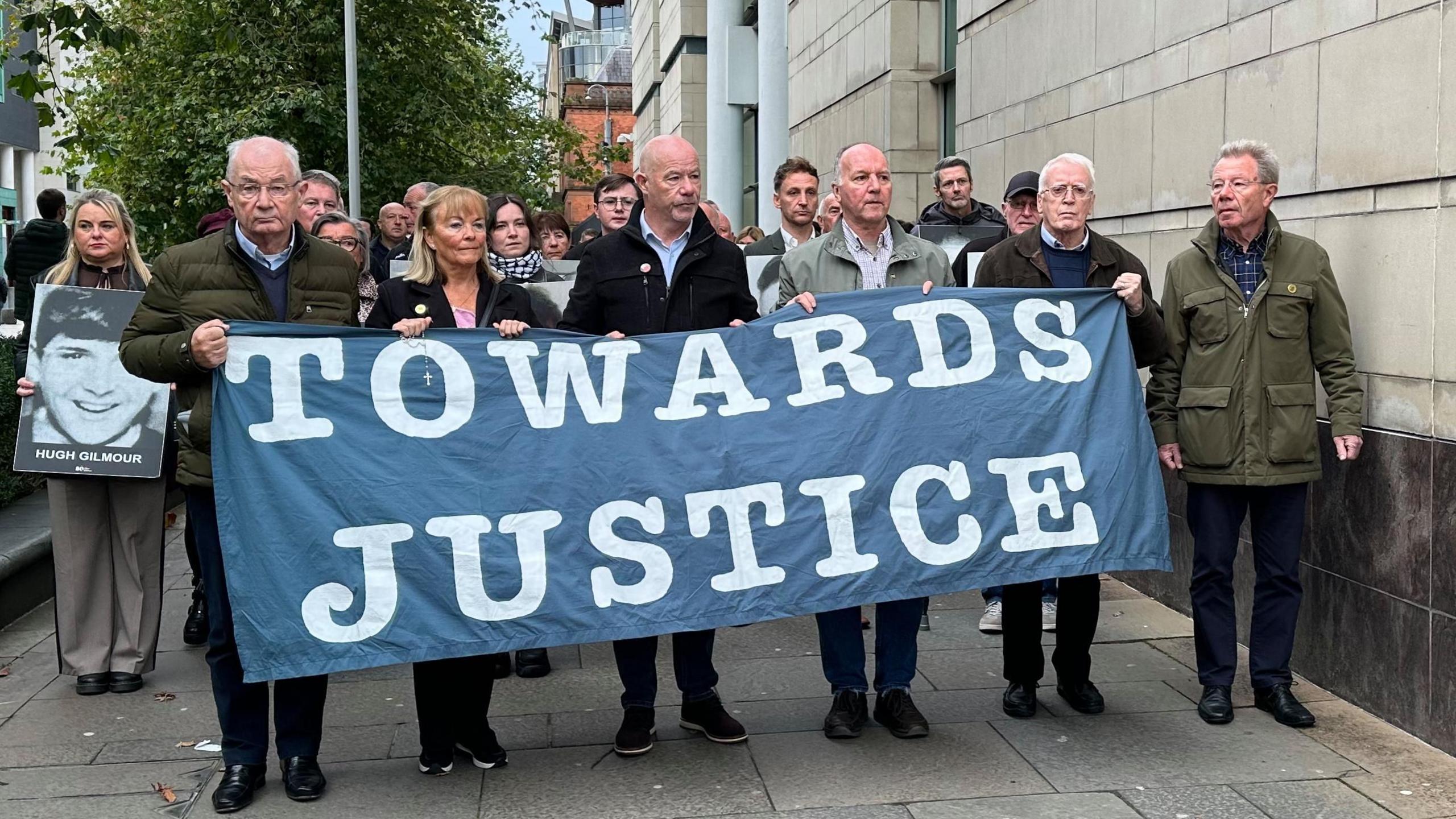Why did the judge acquit Soldier F in Bloody Sunday trial?
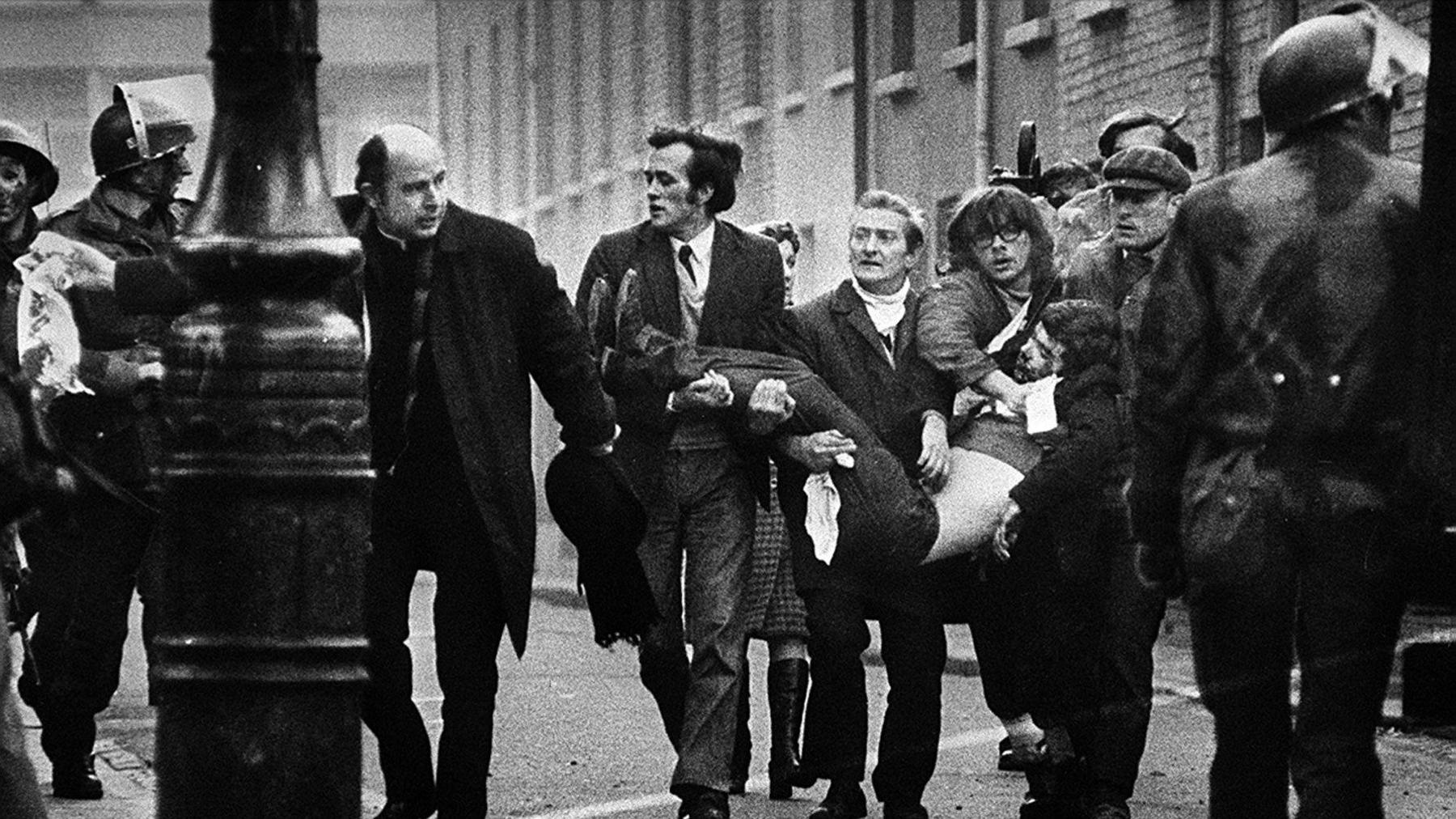
The fatal shootings of 13 people by the army on Bloody Sunday was one of the most consequential days of the Troubles
- Published
The case of R v Soldier F was one of the most controversial, significant and high-profile trials over killings from the conflict in Northern Ireland.
The fatal shootings of 13 people by the Army on Bloody Sunday was one of the most consequential days during 30 years of violence known as the Troubles.
Mr Justice Lynch's remarks, external about what happened on that January afternoon were scathing.
He said troops had "lost all sense of military discipline", as they shot unarmed civilians "in the back…as they were fleeing from them, on the streets of a British city".
Furthermore, the judge said he had no doubt "the soldiers who opened fire did so with the intention to kill" – and they "did not act in lawful self-defence".
Soldiers G and H 'serially untruthful'
However, he explained that the burden of proof in criminal cases lay with the prosecution – they had to prove who fired the shots.
Therefore, the whole case rested on the evidence which came from two statements given by two other former soldiers – G and H – to the initial investigations in 1972.
The statements, which were read to the court, were the only pieces of evidence which specifically said that Soldier F had fired his rifle.
The judge said that Soldiers G and H had been found to be "serially untruthful" in their accounts of Bloody Sunday – and therefore, their statements could not be used to prove the case against Soldier F.
EXPLAINER: The 50-year-road to a soldier standing trial for murder
REACTION: Soldier F's acquittal as it happened
BACKGROUND: What happened on Bloody Sunday?
THE STATE OF US: Soldier F not guilty
Reaction to verdict
Bereaved families who had pushed for a prosecution feel vindicated, to a degree, by the judge's remarks about the Parachute Regiment's actions on Bloody Sunday.
Representatives of veterans are welcoming the acquittal – and re-emphasising that paramilitaries killed 90% of the people who died during the Troubles.
Political reactions in Northern Ireland are predictably divisive.
Irish nationalist politicians are expressing disappointment at the verdict, and say there should have been a fuller investigation into Bloody Sunday at an earlier stage.
Unionists are arguing the outcome raises questions about whether Soldier F should ever have been prosecuted.
The Westminster government has given a more nuanced reaction – saying it is "committed to finding a way forward that acknowledges the past, whilst supporting those who served their country during an incredibly difficult period in Northern Ireland's history".
The issue of how killings from the Troubles should be investigated is one of the most complex in Northern Ireland – and the prosecution of former members of the security forces is one of the most controversial elements of that debate.
It will remain to the fore as legislation on a new investigative approach makes its way through Parliament in the coming months.
Related topics
- Published23 October
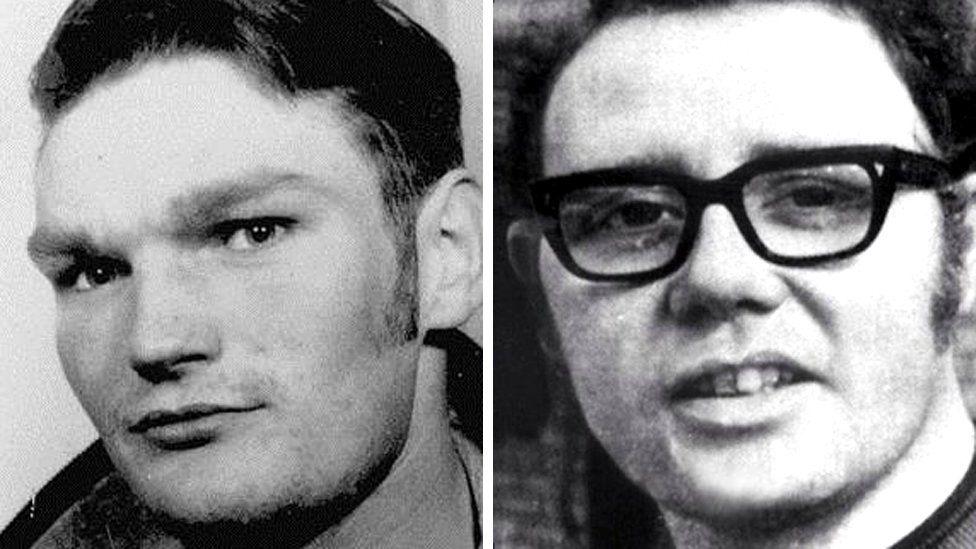
- Published23 October
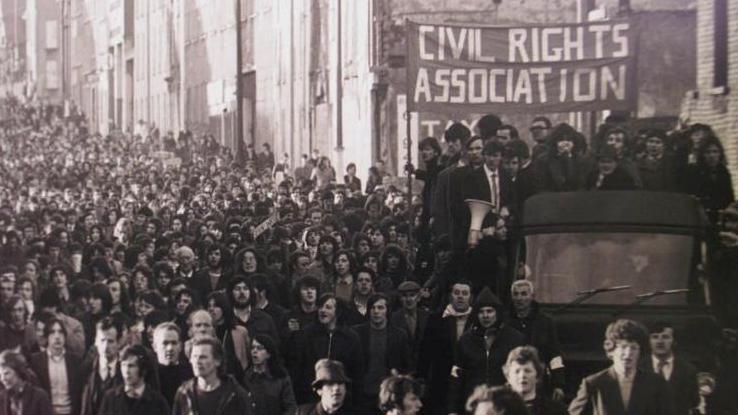
- Published24 October
